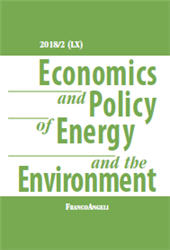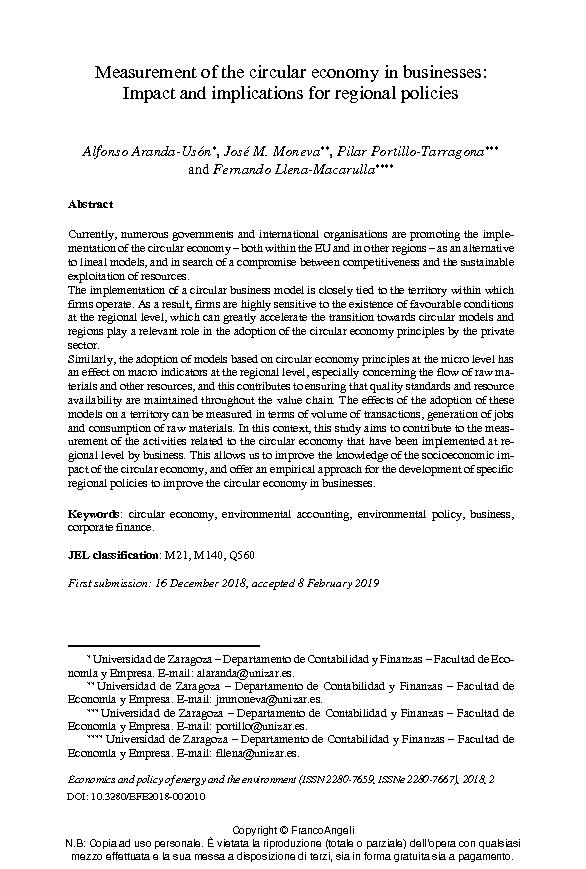Measurement of the circular economy in businesses : impact and implications for regional policies
187-205 p.
Currently, numerous governments and international organisations are promoting the implementation of the circular economy - both within the EU and in other regions - as an alternative to lineal models, and in search of a compromise between competitiveness and the sustainable exploitation of resources. The implementation of a circular business model is closely tied to the territory within which firms operate. As a result, firms are highly sensitive to the existence of favourable conditions at the regional level, which can greatly accelerate the transition towards circular models and regions play a relevant role in the adoption of the circular economy principles by the private sector.
Similarly, the adoption of models based on circular economy principles at the micro level has an effect on macro indicators at the regional level,especially concerning the flow of raw materials and other resources, and this contributes to ensuring that quality standards and resource availability are maintained throughout the value chain. The effects of the adoption of these models on a territory can be measured in terms of volume of transactions, generation of jobs and consumption of raw materials. In this context, this study aims to contribute to the measurement of the activities related to the circular economy that have been implemented at regional level by business. This allows us to improve the knowledge of the socioeconomic impact of the circular economy, and offer an empirical approach for the development of specific regional policies to improve the circular economy in businesses. [Publisher's Text]
-
Articoli dello stesso fascicolo (disponibili singolarmente)
-
Informazioni
Codice DOI: 10.3280/EFE2018-002010
ISSN: 2280-7667
MATERIE
PAROLE CHIAVE
- Circular economy, environmental accounting, environmental policy, business, corporate finance



